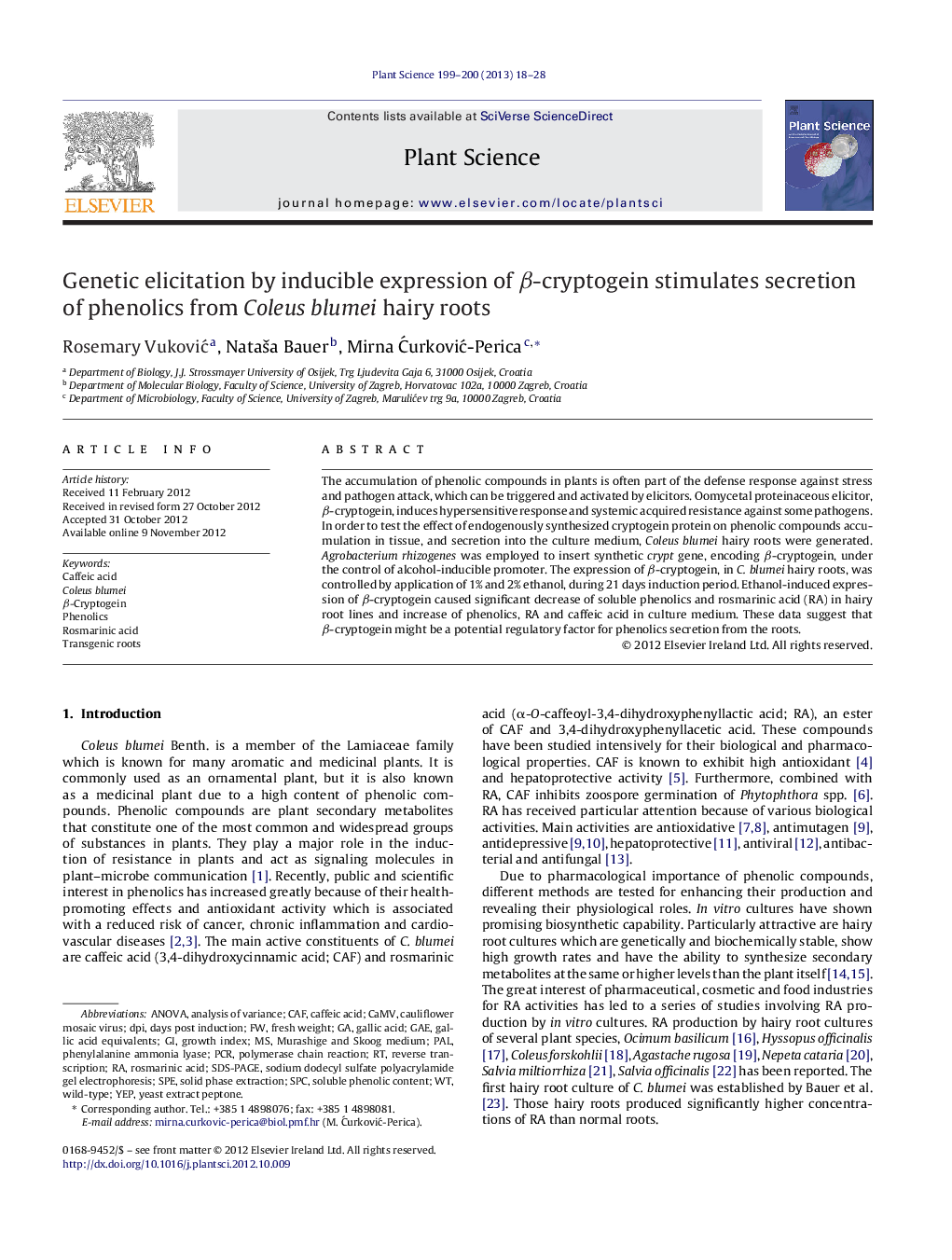| Article ID | Journal | Published Year | Pages | File Type |
|---|---|---|---|---|
| 2017331 | Plant Science | 2013 | 11 Pages |
The accumulation of phenolic compounds in plants is often part of the defense response against stress and pathogen attack, which can be triggered and activated by elicitors. Oomycetal proteinaceous elicitor, β-cryptogein, induces hypersensitive response and systemic acquired resistance against some pathogens. In order to test the effect of endogenously synthesized cryptogein protein on phenolic compounds accumulation in tissue, and secretion into the culture medium, Coleus blumei hairy roots were generated. Agrobacterium rhizogenes was employed to insert synthetic crypt gene, encoding β-cryptogein, under the control of alcohol-inducible promoter. The expression of β-cryptogein, in C. blumei hairy roots, was controlled by application of 1% and 2% ethanol, during 21 days induction period. Ethanol-induced expression of β-cryptogein caused significant decrease of soluble phenolics and rosmarinic acid (RA) in hairy root lines and increase of phenolics, RA and caffeic acid in culture medium. These data suggest that β-cryptogein might be a potential regulatory factor for phenolics secretion from the roots.
► Elicitors and elicitor transgenes influence plant secondary metabolism. ► Coleus blumei hairy roots carrying oomycetal elicitor gene – crypt were generated. ► β-Cryptogein stimulated secretion of phenolics into the culture medium. ► crypt might be a potential regulatory gene for phenolics secretion from the roots.
